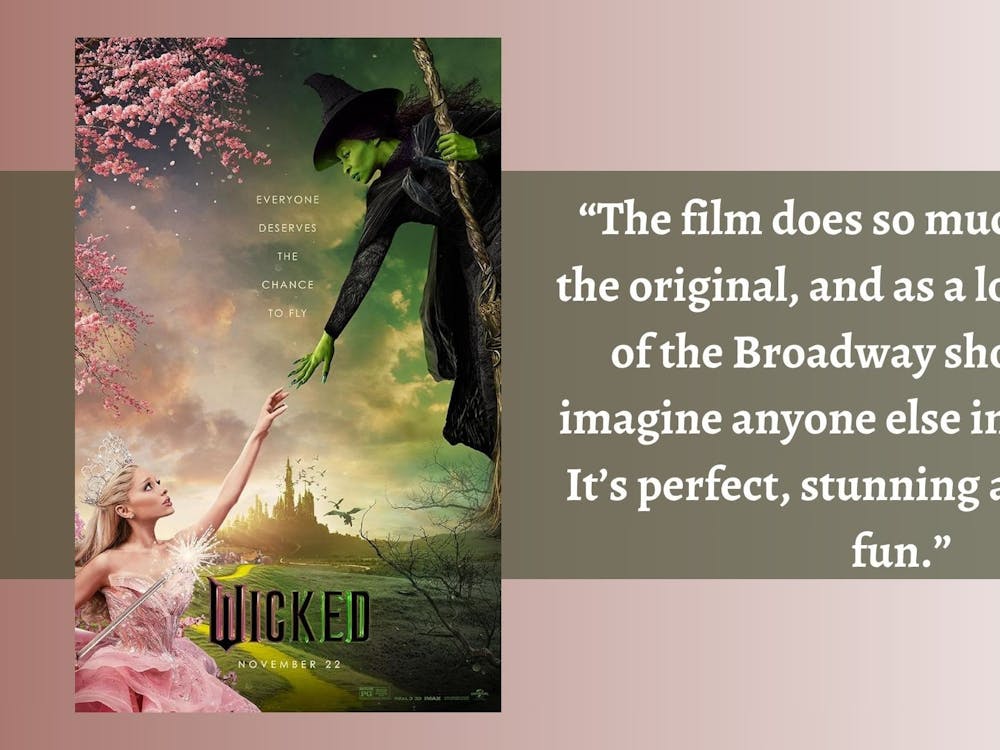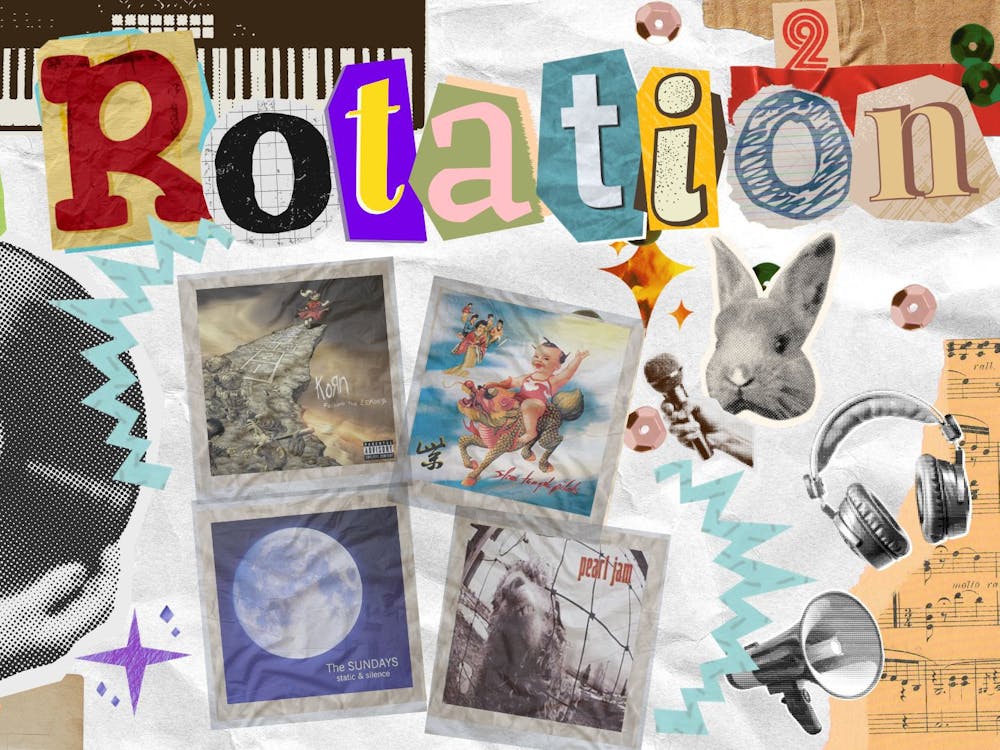By Olivia Lewis, The Miami Student
Given that there are over 64 million Netflix subscribers, and Oxford no longer has a working movie theatre, we'll be bringing you weekly movie reviews solely about films available to stream on Netflix. Happy Netflix-ing.
A plain old pumpkin disguised as a gilded coach, "Roman Holiday" (1953) is an odyssey of sophistication on the outside with a somewhat superficial takeaway at its pulpy, gut-filled center. It's simultaneously romantic and overly idealistic, cultured and, at the same time, pretentious.
As the flick that made Audrey Hepburn famous, "Roman Holiday" is best described as a Cinderella fable in modern dress, albeit reversed and more glamorous. The tale surrounds sheltered Princess Anne's (Audrey Hepburn) secret Roman rendezvous with the ambitious journalist Joe Bradley (Gregory Peck).
Bored stiff with propriety, royal protocol and gaudy thrones, Anne yearns to live life as an everyday woman. It isn't until the touring signorina arrives in Italy that she finds the chance to slink away to the cobbled streets of Rome.
Caught between selling her out for the scoop of a lifetime and his own amorous feelings for her, Joe takes the incognito princess on a tour of the Eternal City, admiring her curiosity as she accepts carnations from peddlers and dines on gelato.
It's a setup of monumental heights for the princess that decides to slum it up, and after 62 years, Anne and Joe's escapades still shine. Anne lights her first cigarette, nearly crashes a motor scooter and busts one of her royal minder's heads with a guitar at a shindig aboard a Tiber River barge.
Joe, using both his street-smarts and ability to talk folks into anything, starts off as in it for the story. This changes when he shares a smooch with Anne after escaping the clutches of her pursuers. Their relationship, while far too rushed to be realistic, is desperate and meaningful.
The two are perceptive enough to know that a stuffy future beckons Anne from the wings, but decide to take a stab at love anyway. This acts as a moment of maturity for Anne, who ultimately must return to her duties, and one of realization for Joe, who must learn to be honest with himself and others.
Rome itself is an arresting setting, featuring an exotic array of Italian locale. Cafés and markets sit nestled between rustic alleyways and cultural monuments like the Trevi Fountain grace the screen in urbane glory. Moonlight river barges, vintage beauty salons and zipping motor scooters also make an appearance.
In spite of this, Anne and Joe's interactions with Italian locals are either nonexistent or single-faceted, rotating between the same few taximen, maids and apartment tenants. These scenarios occur between service workers aspiring to fulfill their jobs and Americans unable to comprehend why Italians can't afford them special privileges.
Joe is the greatest offender, asking his tenant to loan him funds when he hasn't paid his rent for two months and compelling a taxi driver to drop off Anne's comatose body at the Colosseum in the middle of the night. The depiction of Italians as mere services allows the two to remain blissfully isolated in their fabricated image of the city.
Enjoy what you're reading?
Signup for our newsletter
As the coddled, but repressed princess of rebellion, Hepburn as Anne is Venus incarnate, not only in appearance, but also in manner. Everything about her performance is infectious, from her confident strut to the air of suaveness reminiscent of her later role in "Breakfast at Tiffany's."
Anne's journey of empowerment and exploration is masterfully executed by the fascination she pours into every mundane quirk or routine. Her eyes sparkle, the nose wrinkles and her lips draw back in a delighted grin.
Toward the start of her excursion, she even has a local barber refashion her throne-issued locks into a trendy bob cut, an action that only serves to reaffirm Anne's desire for self invention.
Whether it's sneakily kicking off her heels during a royal meet-and-greet or whisking Joe to every plebeian wonder in Rome, onlookers feel and believe the childlike aura that Princess Anne radiates.
However, this childlike wonder sometimes verges on infantilism, robbing her of any self agency she'd like to possess and disenfranchising viewers from taking her plight seriously.
In one scene, Anne collapses into a fit of snot-nosed hysterics after her countess delivers a silver tray of milk and crackers, announcing that she's embittered with it all and won't be alive come morning. It takes the royal doctor sedating her with a needle and criticizing her dream of normalcy to revert her back to her charming, obedient self.
All of this results in disbelief of Anne's ability to decide what she wants and the perpetuation of an antiquated stereotype where women require a male figure for guidance.
"Roman Holiday" is a modern fable whose leading lady possesses both antics and innocence capable of immortalizing the film forever. Despite its highbrow, roseate view of the world, devotees of Audrey Hepburn will surely delight in the wit and warmth that the 50s screen queen delivers.
"Roman Holiday" is currently streaming on Netflix.




